70 Things I’ve Learned From Writing 1000 Blog Posts.
This is my thousandth post.
My thousandth.
I can’t really get my head around that number. There are few things, short of bodily functions and actions taken to sustain my existence, that I have done a thousand times.
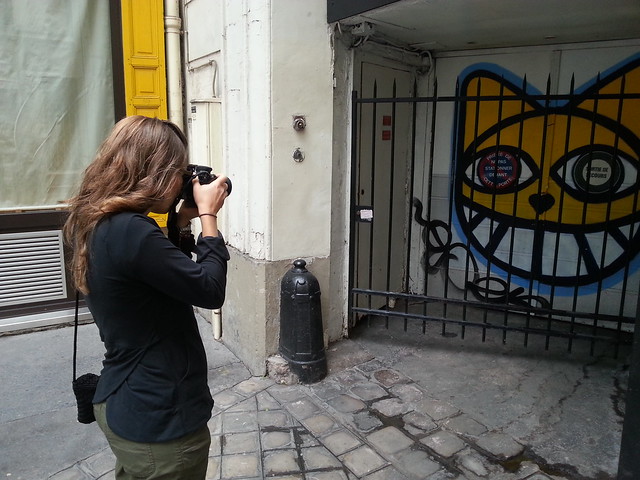
Oh, and I’ve apparently taken 34,000 photos, too.
–
I mean, doing a thousand of anything is a lot. I’ve struggled over writing a thousand words, before. Ask me to do a thousand sit-ups and will laugh, heartily, for so long that it will grow really, really awkward. So you can imagine that a thousand posts (from someone who can’t spend five minutes on the internet without wandering off to Zappos to look at shoes, or checking Facebook to see which of my friends have dressed up their pets in hats) is kind of a miracle.
I’m trying to make sense of all of it. To look back on these last thousand posts and figure out what I’ve learned, what the point of all of it has been. It’s gone to my head, of course, like most things do. I’ve now declared myself some sort of authority on the whole blogging topic (though really, a more apt way of putting it would be this: If I can do it, anyone can).
And so, to commemorate today, I’ve compiled a 70 things I’ve learned from writing one thousand posts. I was going to do a thousand things I’d learned, but … ugh. That sounded exhausting. And then I tried to make it one hundred things I’d learned, but I couldn’t come up with enough of them without repeating myself and then I started looking for boots online and … what was I talking about?
Oh, right. My thousandth post. Welcome to it. Here’s what I’ve learned since I started the blog, 999 posts ago.
- Pick the right topic. Choose a subject that you will be excited about in a few days, a few months, a few years. Make it something that you can write about day in and day out. For me, it was travel. And my husband. And the pursuit of cupcakes.
– - If you’re stumped on a name for your site, enlist the help of a friend. They can offer valuable feedback, and point out embarrassing double entendres or potentially awkward domain names.
– - If you are seriously about blogging, buy a domain name and host your site there. Building a huge blog following on a domain you don’t own (like on a wordpress.com or blogspot.com account) is basically like doing a bunch of repairs and upgrades to a rental car.
– - Your first few posts will probably be awkward. That’s okay – it takes time to figure out something new. You weren’t great at walking or talking when you first started doing those things, either. Like everything else, the more you blog, the easier it will get.
– - Determine the voice and tone of your writing. Is it serious? Lyrical? Humorous? Whatever it is, make it true to you (writing in a voice that isn’t your own is exhausting and it will eat at your soul. It’s like putting on a fake accent for days on end). Once you know who you are as a writer, then you can deviate and try new things (which leads me to my next point …)
– - Don’t be afraid to experiment. Write haikus. Make lists. Add speech bubbles to photos. You won’t find out what works without discovering what doesn’t.
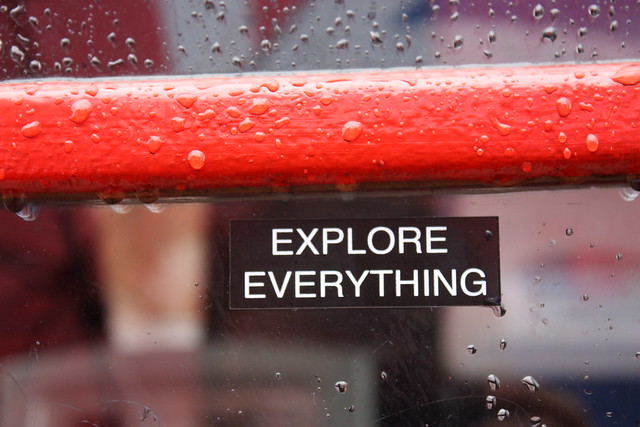
– - Are you in it for the money? If so, then you should probably stop blogging right now. There’s very little money to be had in this field. Write because you love it.
– - Stop trying to make things go viral. If it does happen, it will be totally unpredictable and shocking, and will often have no correlation to how much work you put into a piece. This is my most shared post. It took me about 20 minutes to write.
– - Get on social media. If you are anything like me, it will feel awkward and overly-self-promotional. But Twitter, Google +, and Facebook are some of the key ways I drive traffic to my site. If you want people to read your blog, you need to be willing to share stuff with your network.
– - Sometimes, you will find you have something important to say that has absolutely nothing to do with the main topic of your blog. And that’s okay.
– - Not everyone will like you. This is true in life and blogging. But people have an easier time telling you that they don’t like you on the internet.
– - If you are proud of what you’ve created, then that’s enough.–
– - If you are afraid of running out of things to say, then talk about the fact that you are afraid of running out of things to say.
– - The best way to get over writer’s block is to write. Sit and type something. Even if it doesn’t make any sense. Even if you are just transcribing the lyrics to a song. Just type. And eventually, the words will come.

– - “Bash it out and tart it up.” Nick Lowe said this, and it’s one of my favorite quotes for mornings when I feel like I can’t come up with anything clever or beautiful to write. I’ll just lay down the bare bones of a post now, and make it pretty later.
– - Did you hate your last post? Then write another one. Hate that one, too? Then write another. That’s the beauty of a blog. You always get a second chance. And a third. And a fourth.
– - Typos don’t make you a idiot.
– - You can write a post for just one person, and still find that a lot of people want to read it.
– - Publish regularly. It doesn’t matter if it’s once a month or once a day, find a schedule that works for you and stick to it. And be sure to tell others that you update your blog regularly – this will make it that much harder for you to slack off.
– - Take more photos that you could ever possibly use, record more details than you could ever possibly need. You can always discard them later.
– - When you have a good idea far from your computer, write yourself a note. My home is littered with scraps of paper that Rand and I have scribbled on. We’ve learned to check with one another before throwing them away. “Is this important?” “Yes. That’s the start of the next great American novel.” “… on the back of a Safeway receipt?” “Yeah.”–
–
- Seek out inspiration. If you want to be funny, then read something funny. If you want to be poetic, read something poetic. If you ingest enough wonderful things, you might be able to spit up something that’s pretty darn wonderful yourself.
– - At some point, you’ll spend hours looking for something online. A guide, a piece of information, some help about some topic that’s pressing on you. And if you don’t find it, you need to sit down and write the post yourself.–
–
- Haters gonna hate. Even Socrates had his critics (and they made him drink hemlock poison, so really, you got off easy.)

– - Be patient: building an audience takes a loooong time. After two years of blogging, I had about 100 visits a day. That was it. I kept at it because I love writing, not because people were reading what I wrote.
– - “The first draft of everything is shit.” Hemingway said that. HEMINGWAY. He was one of the greatest American writers EVER and even he wrote a shitty first draft. Just keep that in mind.

– - The next time something truly disastrous happens, remind yourself that it will make a great post. Thanks to the blog, I almost enjoy it when our flight gets delayed, or I hop on the wrong subway, or have a terrible customer service experience. Almost.
– - If someone steals your content, congratulations. You’ve made it.
– - There will always be someone better than you. Someone whose words will render you speechless with their beauty, or breathless with laughter. This is part of the human condition. Accept it, and keep chasing them, because that’s what artists do.
– - You will look back and be mortified by at least 20% of everything you’ve written. That’s good. You need to make mistakes first, so you know what to avoid later.
– - Study your working environment, and find out what’s best for you. Maybe your best ideas come at night. Maybe they strike you first thing in the morning. Maybe you blog best while sitting on the couch, eating cookies, and simultaneously browsing the clearance section on Anthropologie’s website.
– - If you’ve decided to mimic another artist’s style in a post, be sure to link to them. This is the difference between an homage and looking like a copycat.
– - Accept that some days, writing just ain’t gonna happen. Go for a walk. Or read a book. Or eat a cupcake. Or two.
– - Sometimes, someone calling you on your bullshit can lead to amazing things.
– - If everyone said they liked it, you wouldn’t believe them anyway.
– - Bad is better than boring.
– - Done and mediocre is better than unfinished and brilliant.
– - Rage can be a great source of humor.
– - Don’t underestimate the ability of a snack to vastly improve your writing abilities.
– - You will eventually have to delete something beautiful. Accept it, and get used to it. Because eventually, something even more lovely will come to pass.
– - If 20 people love it, and one person hates it, you will inevitably focus on that one person. There’s nothing I can say to stop you from doing that, because I do it, too. I just think we all need to take a moment to realize how irrational we’re being.
– - You are probably at least slightly more talented than you think you are.
– - Accept that you will, either due to human or computer error, lose a post. You will have spent hours crafting it and -poof- it will vanish. The best way to deal with this, I’ve found, is to stomp around doing your best impression of The Incredible Hulk. “GAAAAH! GERALDINE SMASH.” “Did you lose a post, sweetie?” “Yes. Geraldine lose post. Now rageful.”
– - Editing requires perspective. Give yourself enough time to let a post rest for a few hours (or even a few days) and revisit it later. You will be amazed at how much easier it is to evaluate your work honestly when you’ve had a break from it.
– - Accept that most posts will never feel perfect. Sometimes, you just have to hit publish.
– - Don’t worry about connecting with your audience; the only thing people can’t relate to is insincerity. The innerworkings of your heart, the thoughts that creep into your head before you fall asleep, the middle school celebrity crush you had? We’ve all been there. Trust me.
– - If you have an idea, and you lose it, don’t fret. Lost loves, forgotten ideas, the lyrics to a song you can’t quite recall: they all come back.
– - If you keep getting distracted by the allure of the internet, try disconnecting from it. Write a draft in a word document, or in a notebook. You’ll be amazed at how much you get done when you aren’t wandering off to reddit every ten minutes.
– - Sometimes the photos you choose dictate the post. Sometimes the post dictates the photos you use. Neither is wrong.
– - No matter how old you are, you have a lifetime of experiences and stories to draw from. Toss in a few anecdotes from childhood – you’ll find that it makes an otherwise thin story that much richer.
– - If you cry at your own work, or you laugh at it, or you do some weird hybrid of the two where you’re laugh-crying – that’s probably a good sign.
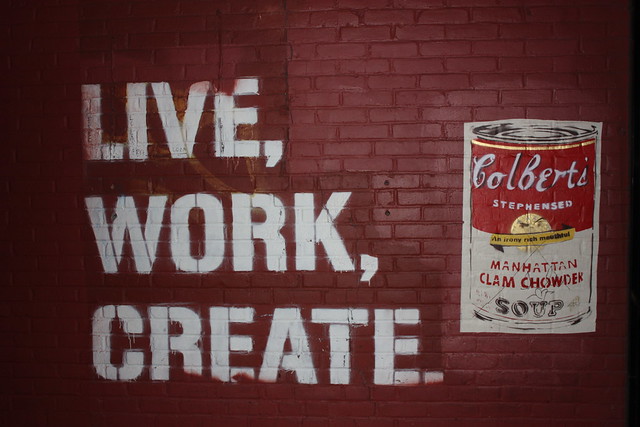
– - Life isn’t black and white, so don’t expect your blog to be, either. Not every experience will be all bad, or all good. Not every vignette in your life will be perfectly poetic, or entirely disastrous. If you want to be real, include all the details, even the ones that don’t fit with the narrative.
– - Self-deprecation is funny; self-pity is annoying.
– - Spell-check on its own is not enough. Try reading your post aloud, slowly. Make changes accordingly.
– - If you are struggling with an explanation, or a phrase, try explaining it to a friend. Whenever I get stumped, I turn to my husband and say, “I just want to explain x on the blog. How sometimes it can be a little bit y, but most days it’s totally z.” And just like that, I’ve done it.
– - Don’t underestimate the power of doodles.
– - It’s okay to take a sick day.
– - If your productivity is truly struggling, set a timer: give yourself one hour to produce as much content as you can. And then, with little time to rehash and obsess over every sentence, write.

– - This is a leftover tip from journalism school, and I still love it: if the first paragraph of a post is holding you back, then start with the second paragraph. Then you can either write your lead paragraph later, or realize that the second paragraph is a perfectly okay place to start.
– - Really long, numbered lists tend to be crowd pleasers. Just saying.
– - If you find yourself rambling, try approaching a post like you would a thesis paper: start with a topic sentence, an intro, some supporting paragraphs and evidence, and a conclusion. It sounds formulaic, but if you tell an interesting story, no one will mind.
– - Remember that nothing you write on your blog is private. If you wouldn’t say it to someone’s face, don’t say it online.
– - If you want a site that looks professionally designed, then guess what? You are probably going to have to hire a professional designer.
– - It’s entirely acceptable to link to your own work, or previous posts, especially if they are relevant.
– - The criticisms that hurt the most are usually the ones that you secretly believe yourself.
– - Love stories don’t just happen between beautiful people in movies – sometimes they happen to squishy mortals with imperfect skin and crooked bottom teeth. Shockingly, most people are not horrified by this, but instead, are entirely delighted to read about such real-world romances (possibly because they, too, are squishy mortals).
– - Stop trying to be deep. Stop trying to elicit an emotional response from your readers. It will feel heavy-handed or manipulative. Just tell your story – often times, that’s enough.
– - It’s okay to admit that you are wrong. It’s okay to change your mind. It’s okay to say, “I don’t know,” and then go watch a couple episodes of Home Makeover: Extreme Pantries.
– - Don’t feed the trolls. Seriously. Getting into a shouting match with haters on online will make you feel better for about 1/10th of a second. After that, you’ll end up feeling much, much worse for having sunk to their level. (Note to self: please heed this more.)
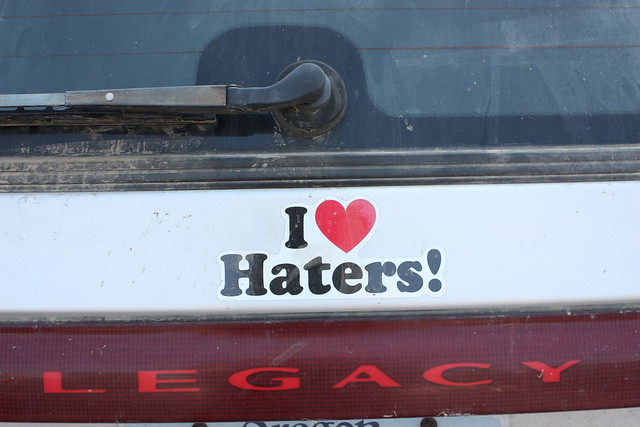
– - Laugh at the fact that you’ve said, time and again, that you could never write a book. But here you’ve written a novel’s worth of posts, day by day. Just something to think about.–


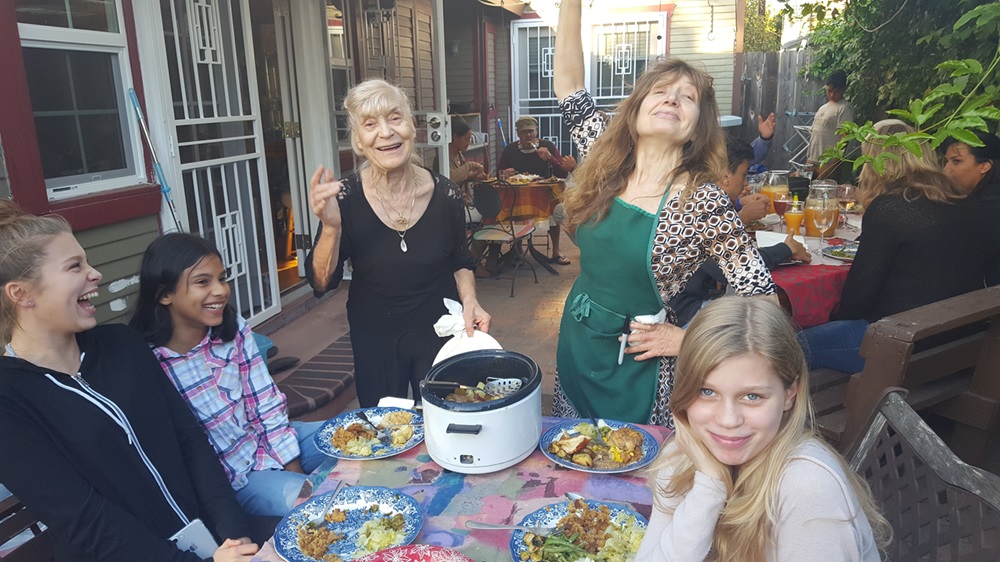







Leave a Comment